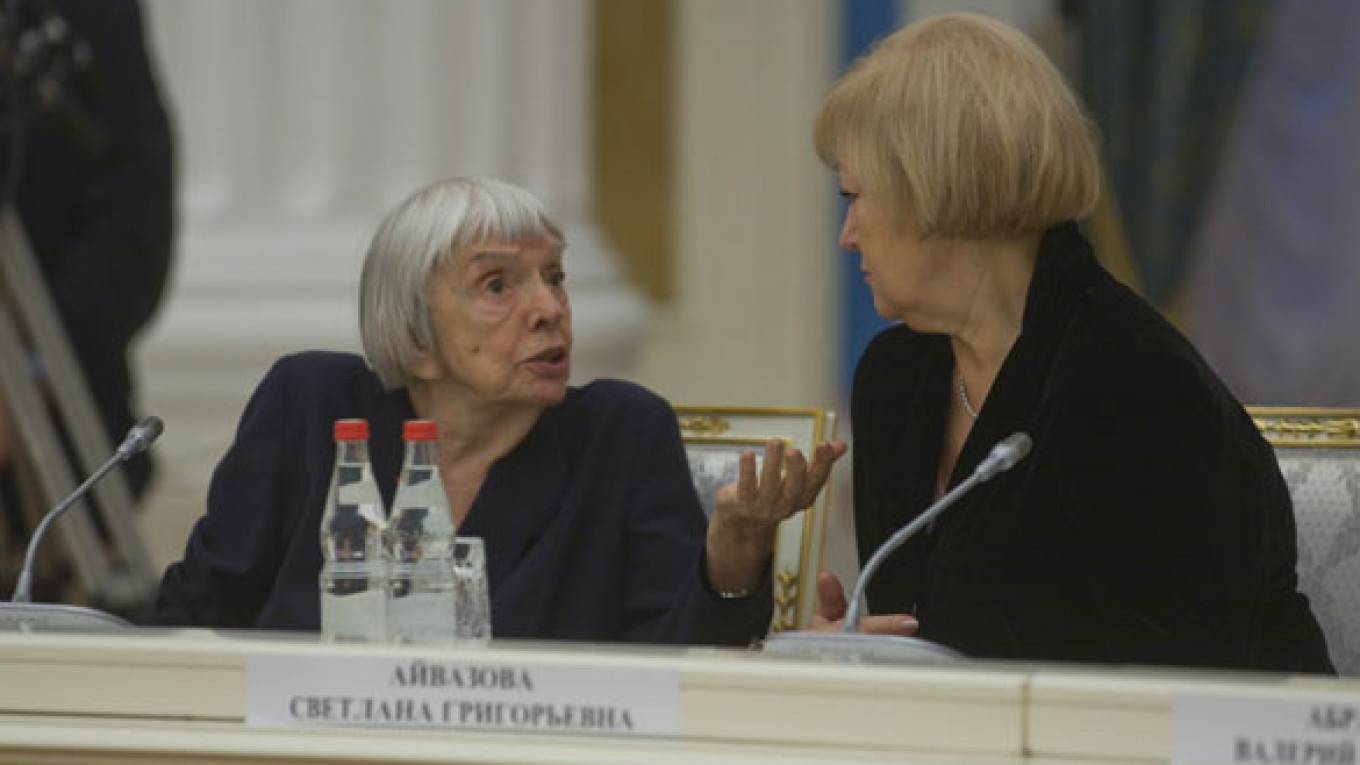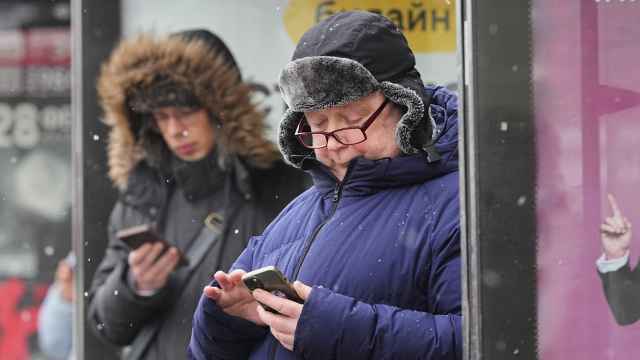The future of the presidential human rights council is cloudy because members have no indication of how the body will fare after Vladimir Putin takes over the presidency next month.
Putin's stormy relationship with human rights activists has led some of the 38-member body's more prominent representatives to cast doubt on its work going forward.
Rights campaigner Svetlana Gannushkina on Monday became the first to announce that she will discontinue her work with the council because of Putin.
"I'm no Bandar-log," she the RBK daily newspaper in an interview published Monday.
Gannushkina, who has repeatedly been suggested for the Nobel Peace Prize because of her work with Chechen refugees, used an expression for "monkey" from Rudyard Kipling's "The Jungle Book."
Putin famously used that word in December when he ridiculed opposition protesters as monkeys.
Council Chairman Mikhail Fedotov said Monday that the body would discuss the members' stance and its future at a session Wednesday.
He said that although the council could legally continue its work unchanged, some members felt a moral obligation not to do so.
"Each of us has a reputation to keep," he told The Moscow Times, adding that members would make their decisions individually.
Asked whether he himself would carry on, Fedotov said that depends entirely on the future conditions.
"If the council becomes more passive, then it will have to be without me," he said.
Veteran human rights campaigner Lyudmila Alexeyeva said Monday that she, too, was prepared to carry on but that she would be surprised if Putin will permit her to do so.
In an interview, she said she regarded last month's presidential election as rigged and, consequently, Putin as an illegitimate president.
"I think he will hardly invite someone to work in a presidential council who regards him as not legitimate," the founder of the Helsinki Group said.
But Alexeyeva, 84, stressed that she would not say no if Putin does allow her to carry on.
"I am a human rights activist and not a politician. I do whatever promotes the rights of our citizens," she explained.
Kirill Kabanov, the head of the National Anti-Corruption Committee, said that while the council's future depends on the next president's terms, it would be wrong to jump ship just now.
He criticized Gannushkina's remark.
"She implies that those who decided to remain are monkeys," he said.
Gannushkina was unavailable for comment.
Putin's spokesman, Dmitry Peskov, said Monday that it is too early to speculate about the council's future.
"As long as Vladimir Vladimirovich [Putin] is head of government, he won't discuss the presidential council," Peskov said.
A Message from The Moscow Times:
Dear readers,
We are facing unprecedented challenges. Russia's Prosecutor General's Office has designated The Moscow Times as an "undesirable" organization, criminalizing our work and putting our staff at risk of prosecution. This follows our earlier unjust labeling as a "foreign agent."
These actions are direct attempts to silence independent journalism in Russia. The authorities claim our work "discredits the decisions of the Russian leadership." We see things differently: we strive to provide accurate, unbiased reporting on Russia.
We, the journalists of The Moscow Times, refuse to be silenced. But to continue our work, we need your help.
Your support, no matter how small, makes a world of difference. If you can, please support us monthly starting from just $2. It's quick to set up, and every contribution makes a significant impact.
By supporting The Moscow Times, you're defending open, independent journalism in the face of repression. Thank you for standing with us.
Remind me later.







